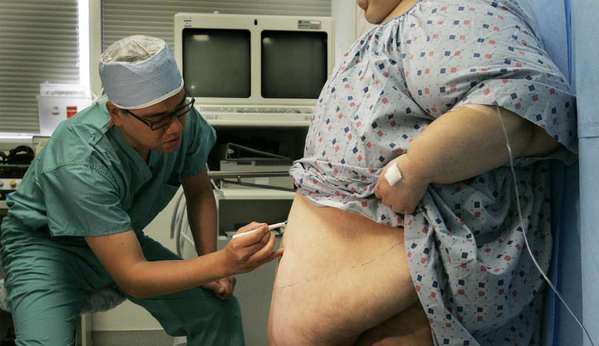Who Needs Surgery to Lose Weight
Weight loss surgery, also referred to as bariatric surgery, is an option for many chronically obese people who have been unsuccessful with other diets and exercise routines.
There are several types of weight loss surgery, all of which are done for people who are at least 100 pounds overweight and/or who have a body mass index (BMI) of 40 or more, and have been in this condition for at least 5 years.
Chronic obesity can lead to a range of life-threatening health problems such as heart disease, diabetes, sleep apnea, arthritis, and more.
Weight loss surgical procedure can involve either of two approaches, according to The American Society for Bariatric Surgery.
- One type includes restrictive procedures, which help to limit the patient’s need for food intake to one meal a day, but don’t affect the digestion of food.
- The second type includes malabsorptive procedures, which alter the process of digestion and thus help the patient to reduce their absorption of calories.
There are two major types of restrictive procedures:
1. Lap band surgery, which through laparoscopic surgery places a silicone gastric band around the top of the stomach to reduce the size of the stomach pouch. This type of surgery allows a person to feel full after eating only a small amount of food
2. Gastric bypass surgery, which involves stapling the small, upper part of the stomach to separate it from the rest of the stomach, and then rerouting the small intestine to connect it to the smaller stomach pouch.
Of the two procedures, gastric bypass surgery is more complex than lap band surgery, which is relatively uncomplicated and only requires a hospital stay of 1-3 days.
In comparison, gastric bypass surgery usually calls for a 5-8 day stay in the hospital.
- Gastric bypass surgery patients can expect to lose 70-75% of their body fat in an 18-month period.
- Lap band surgery patients usually lose about 50-60% of their excess weight.
Both of these procedures can be reversed, but the reversal of lap band surgery is much easier.
Weight loss experts rarely recommend malabsorptive procedures now, because of the wide range of problems they can cause, especially those related to malnutrition and nutritional deficiencies.
Of course, you should talk to your doctor about the pros and cons of bariatric surgery before you make a decision.
IMPORTANT: keep in mind that the long-term success of your surgery will depend on your ability to change your diet and lifestyle permanently.







